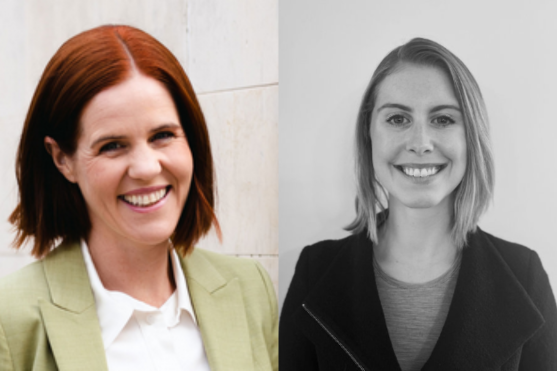Gifts in wills: How can charities ensure that promised bequests are realised?

In this joint Q&A, Morgan Koegel (above right) and Rohani Bixler (above left), two of the specialist speakers at Philanthropy Australia and Include a Charity’s Legacy Lunch in October, share some findings from the latest research on unfulfilled bequests. Ahead of the upcoming report, they provide valuable insights on the cost of ‘missing gifts’ and what charities and advisers can do to ensure a donor’s legacy achieves the impact that was intended.
Join Philanthropy Australia and Include a Charity for a Legacy Lunch on 10 October in Canberra where the research will be presented.
1. Gifts in wills (bequests) are so important to support charities to continue their mission and you’ve said before that ‘missing’ gifts are an issue worth investigating in Australia – has this research allowed you to achieve the outcomes you hoped for?
Morgan Koegel (MK): In 2023, we conducted a pilot research project in Victoria that allowed for us to establish that ‘missing gifts’ (where an executor fails to notify and pay a charity a bequest they were left in a will) are a real issue that cause charities to miss out on funds intended for them by generous bequestors. This new research is the first time the issue has been quantified on a national level – allowing us to see how frequently gifts are missed, what the cost of that to charities are and if there are differences between states.
This is important because charities need to know how large the problem is to decide whether or not to invest precious internal resources on preventing future missing gifts.
2. Were there any surprising new learnings from this research that you think will help others in the sector?
MK: Absolutely! This research demonstrates an urgent need for law reform to make the probate process more transparent and ensure bequestors have confidence that their final wishes will be administered as they intended. For the charitable sector, this demonstration of the prevalence of missing gifts should change internal procedures to prevent organisations from missing out on Gifts in Wills income.
Charities often have a strong understanding that they need to invest time and energy into stewardship, but there is less attention paid to the follow-through of estate administration. If there is no-one within a charity focused on working out why promised gifts don’t materialise, there is a critical piece missing from that organisation’s Gifts in Wills work.
3. In your profession as a lawyer, how important is it for you to see a promised gift to a charity realised?
Rohani Bixler (RB): The creation of a will is a very personal process. The word itself, ‘will’ is descriptive – the document is intended to enable a person to outline their will or intention for how their estate is administered. This is their final opportunity to pass along their wishes. As a lawyer who assists people with preparing these documents, I often witness firsthand the time, energy and emotional strain that can be involved in thinking about these decisions.
Most people do not enjoy planning for their passing and the fact that they have taken the time to consider and outline specific gifts is meaningful. Gifts made in wills to charities are often particularly meaningful, as there is often a special connection between the testator and the charity or the charitable purpose.
It is very important to me, as an advocate for the person preparing the document, that their wishes be fulfilled.
4. What are some of the steps to ensure your client’s gift is successfully realised by the charity?
(RB): This is quite a challenge. At this point in time, the most effective strategy is for me to discuss with the testator the importance of notifying the charity of the bequest. When a charity is aware of a bequest, it can assist. It can also help for the testator to discuss the gift, and the reasons for the gift, with friends or family members. This can help to reinforce the intention, as well as set expectations for those involved in the administration of the estate.
As a lawyer, at this stage there is not a lot that I am able to do proactively to ensure the gift is realised. When speaking with executors, lawyers will ensure that they are aware of their duty to fulfil the gifts outlined in wills. The Succession Law Committee in Victoria is advocating for a change in legislation to require executors to provide notification to beneficiaries of their entitlements, and potentially also to allow solicitors holding a will to contact beneficiaries to provide them with a copy without the consent of the executors.
5. What are the top 3 things donors, bequest fundraisers, professional advisers, policy makers and others should consider to ensure gifts promised to charities are realised?
(MK): I think the following are really important:
- For donors, storing your will securely and where it can easily be located is essential. Communicating with the charities that you’ve left a gift to in your will is also very helpful.
- For policy makers, the report contains a number of recommendations for reform around the storage of wills and the probate process. Action in this area will not only protect the final wishes of bequestors, but grow the income that charities receive through gifts in wills.
- For bequest fundraisers, this study really reinforces the need for a clean CRM, good notes and consistency of terms across teams. Charities struggle to track what happens with their gifts in wills pipelines when they aren’t proactive about keeping data clean over a long period of time.
Philanthropy Australia, in partnership with JBWere, will be presenting insights from John McLeod, author of The Bequest Report in a national roadshow from October to November in QLD, VIC & NSW. Learn more and register for these events here. Please note that due to high demand, waitlists are in place for some locations.